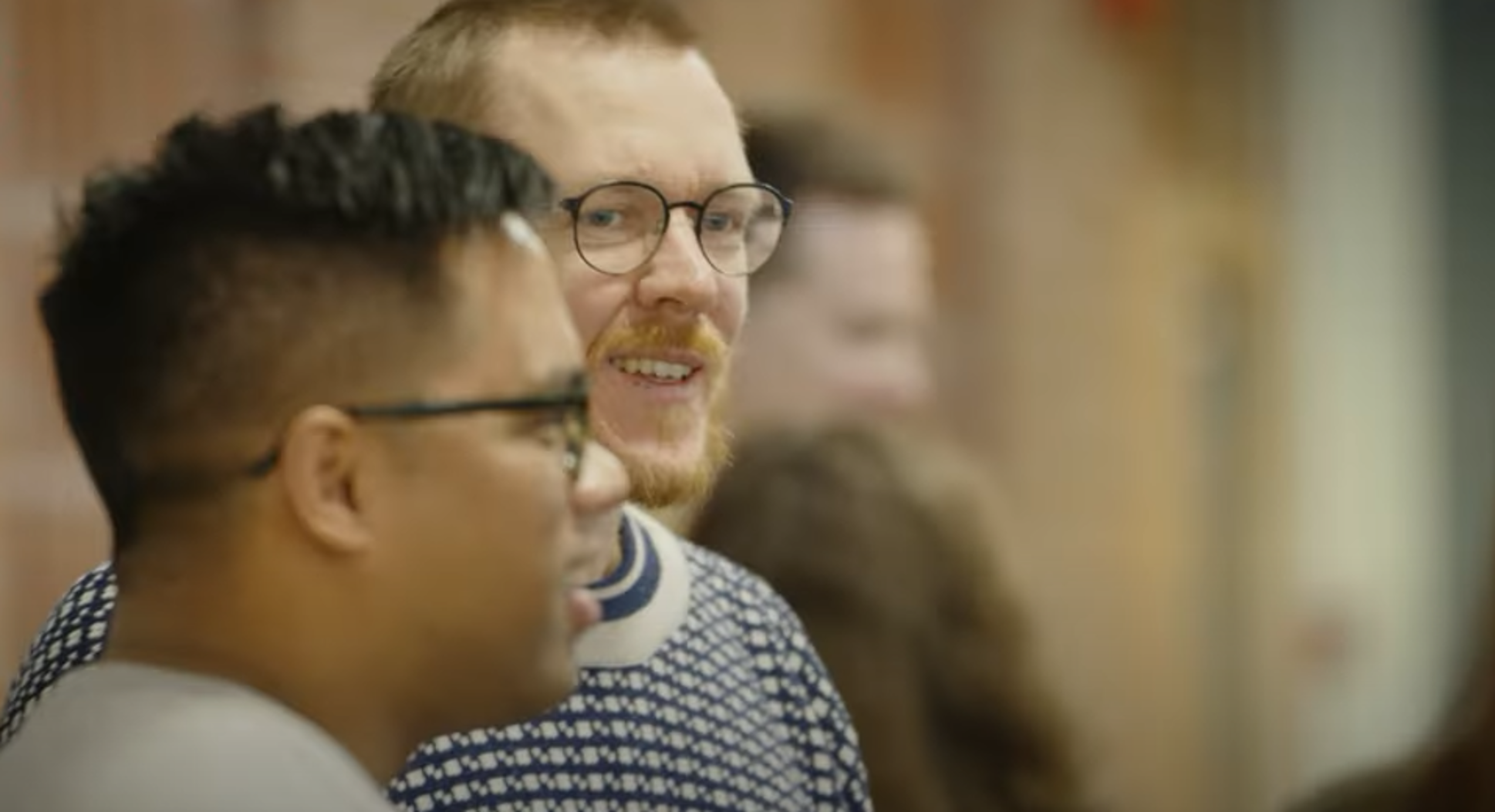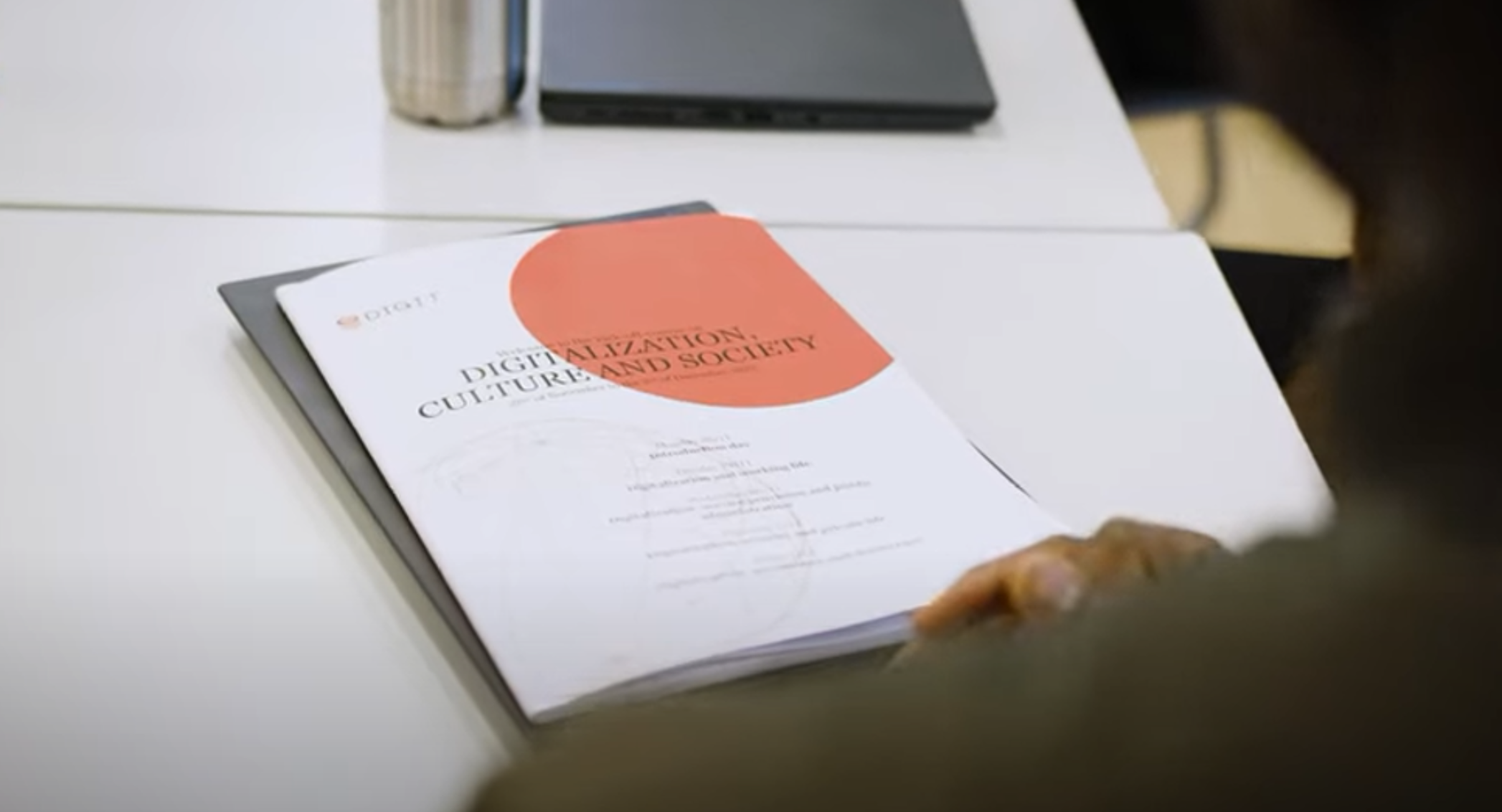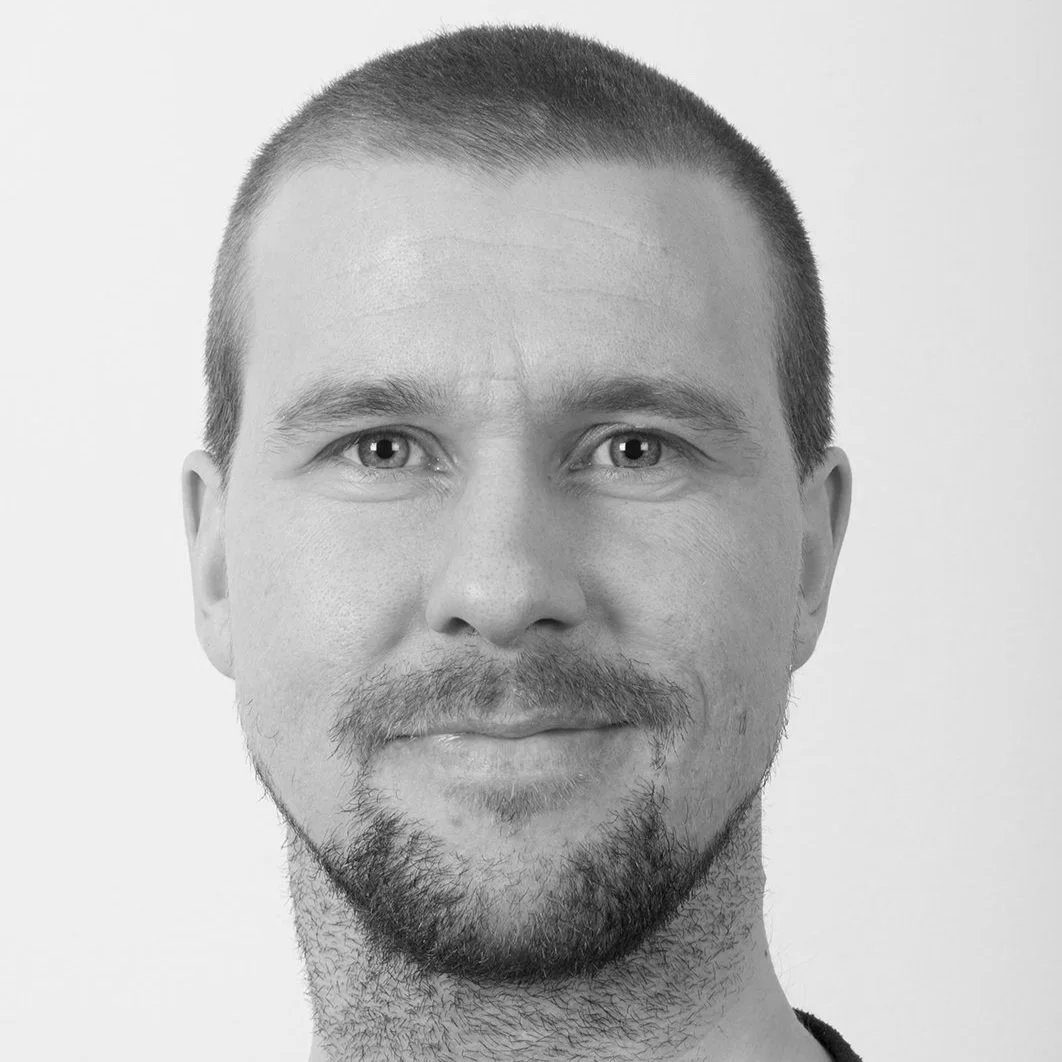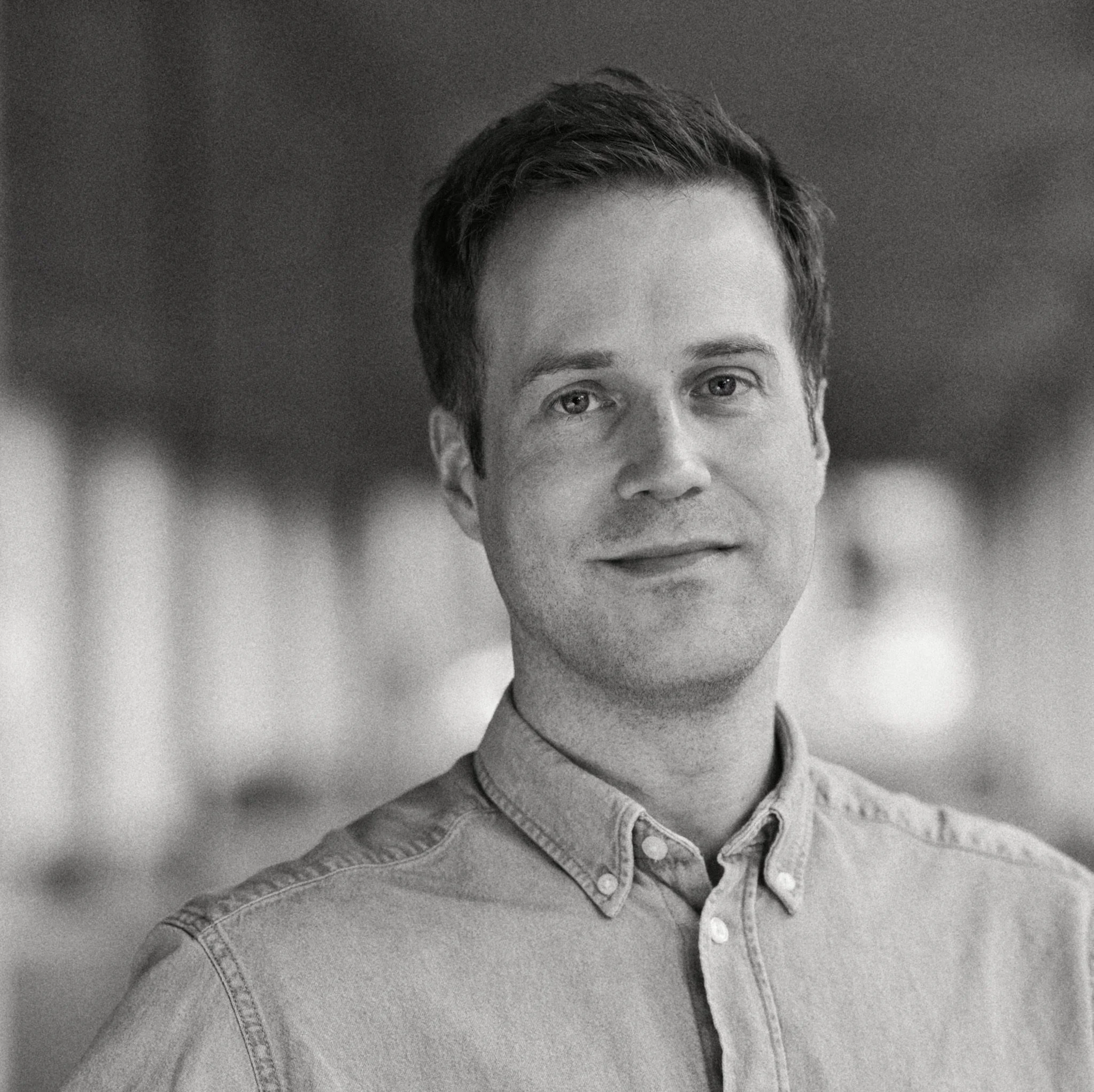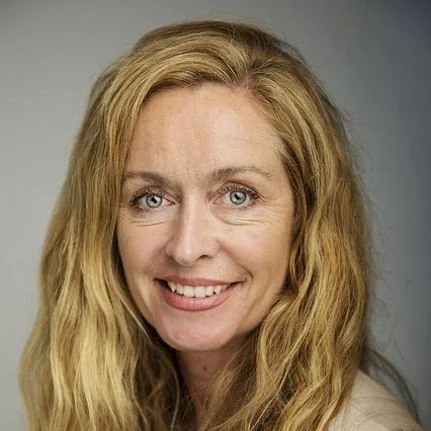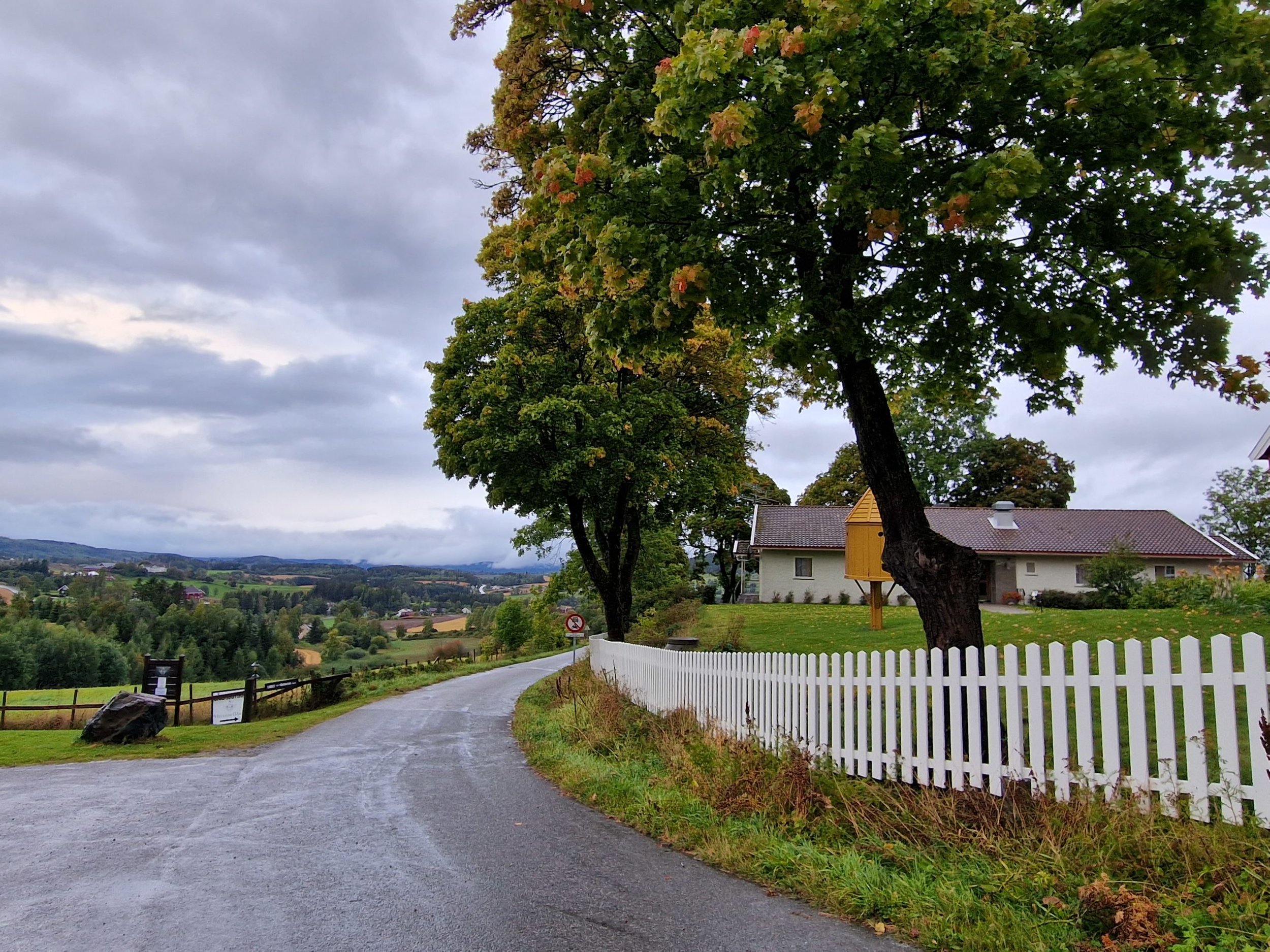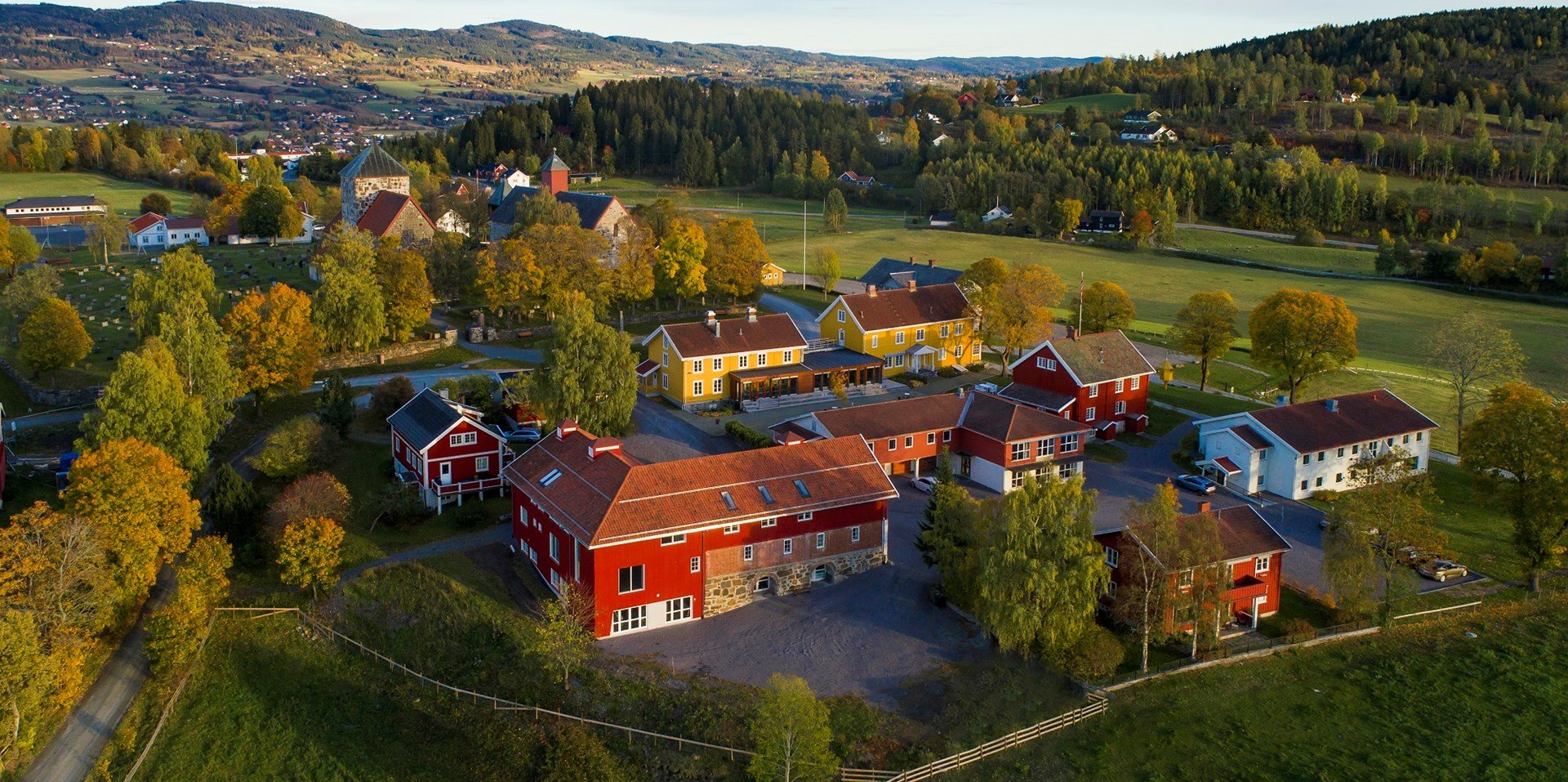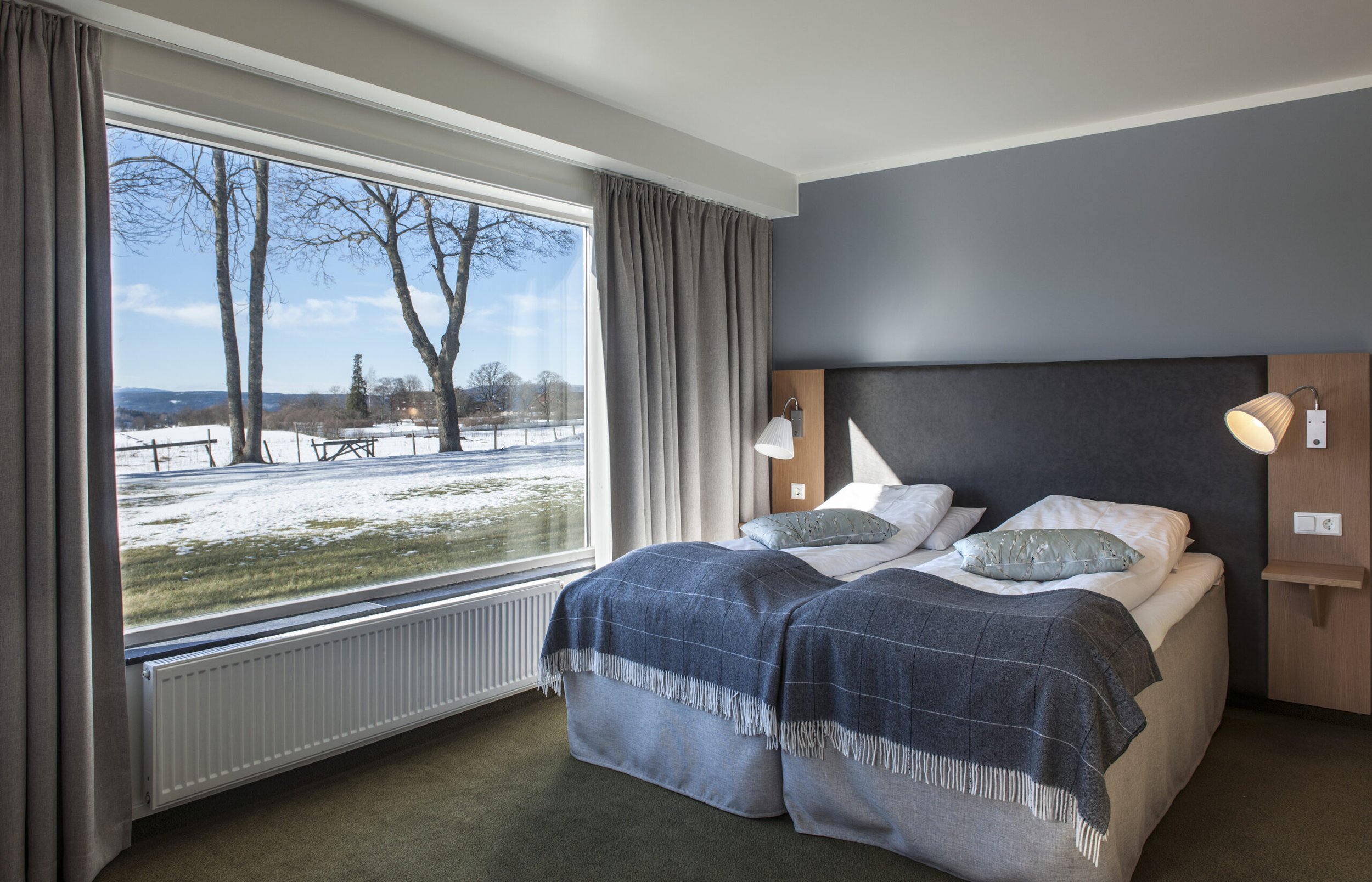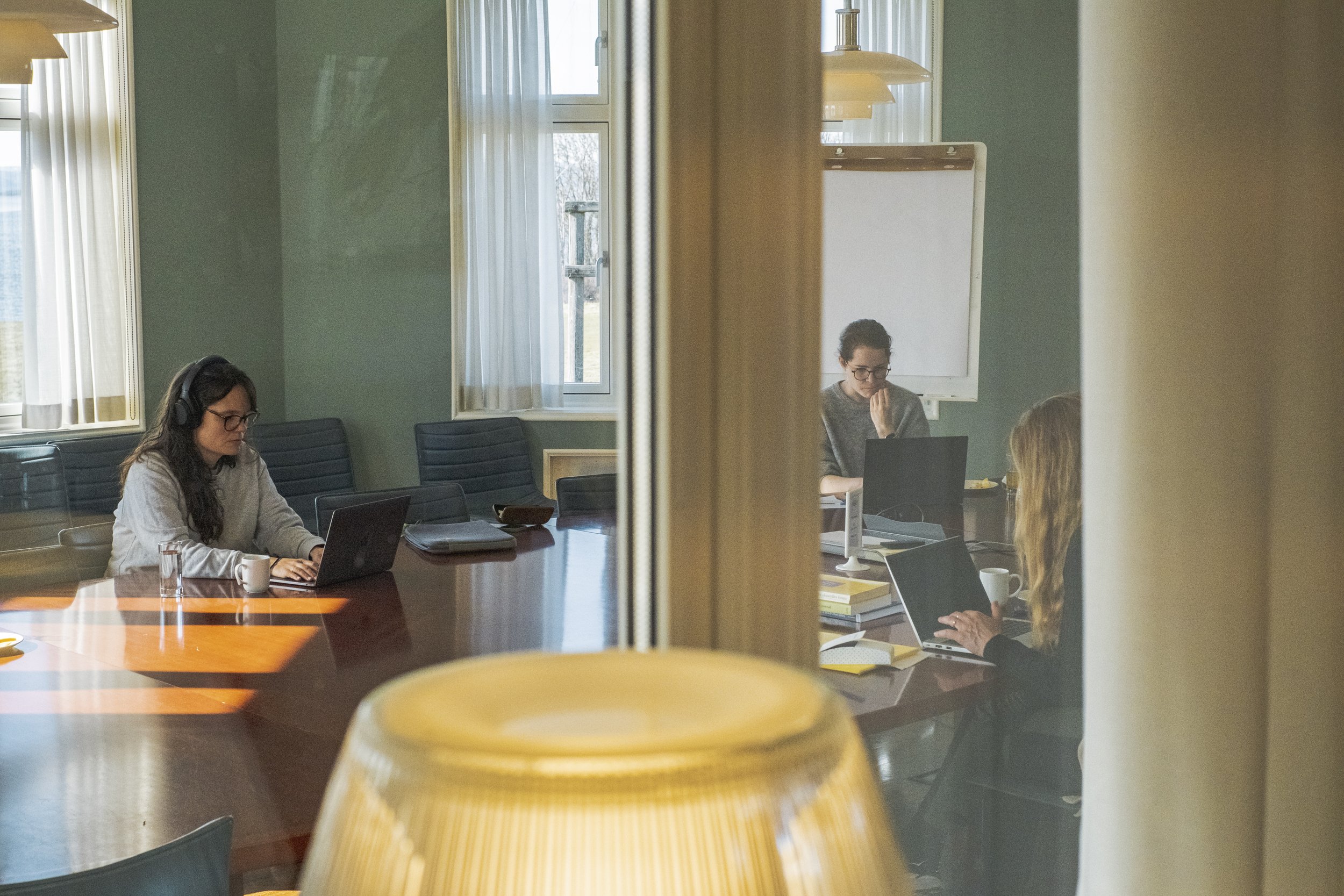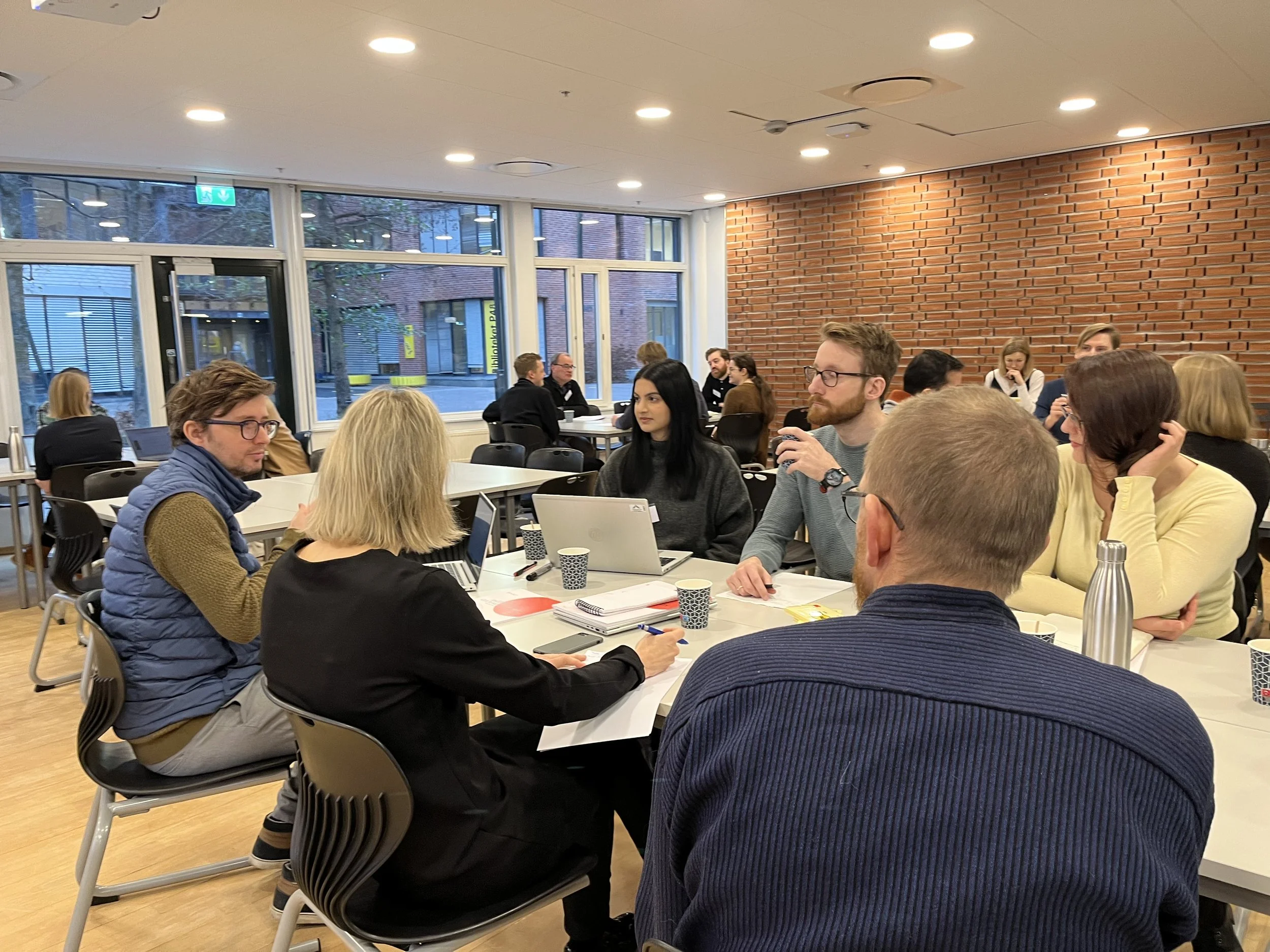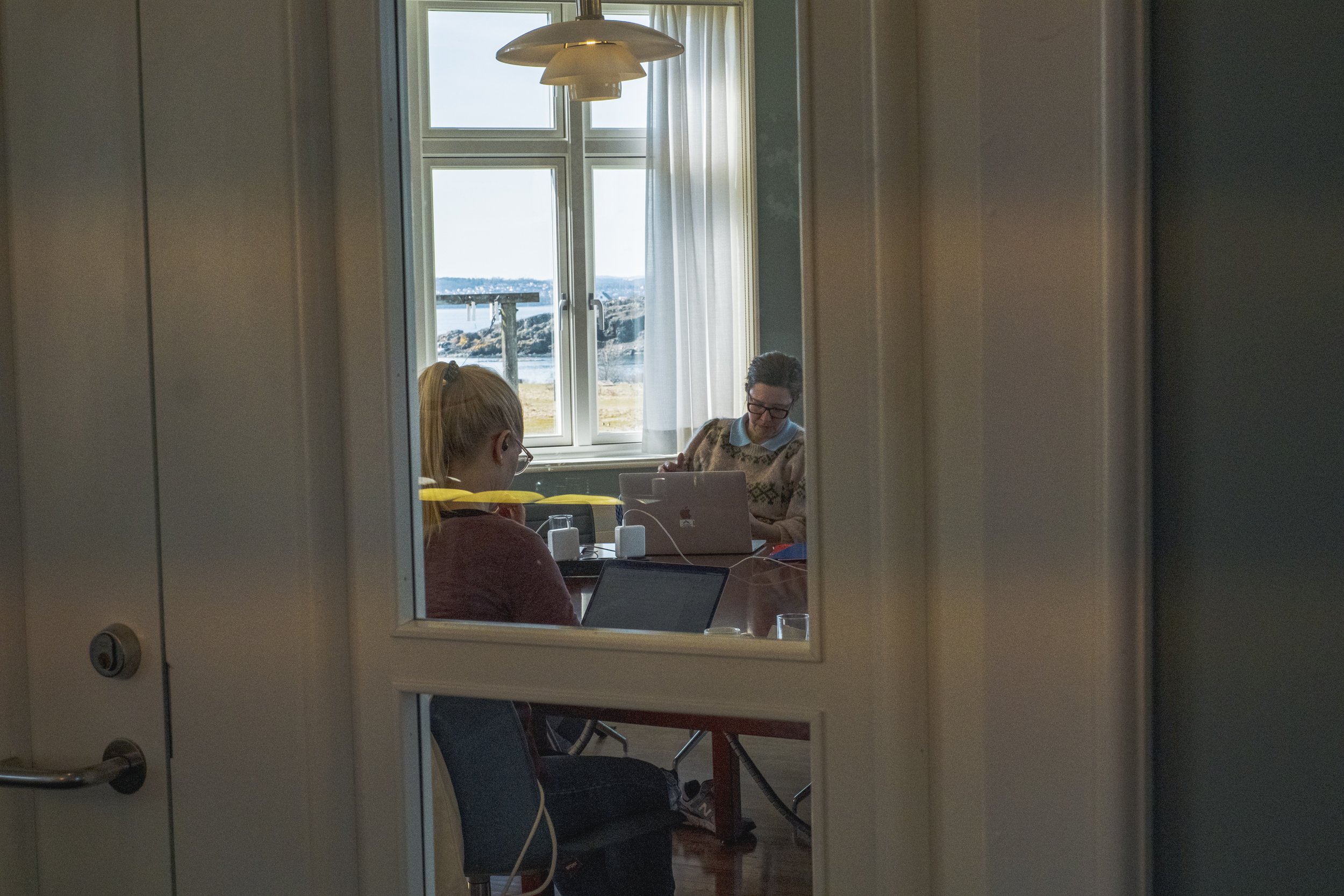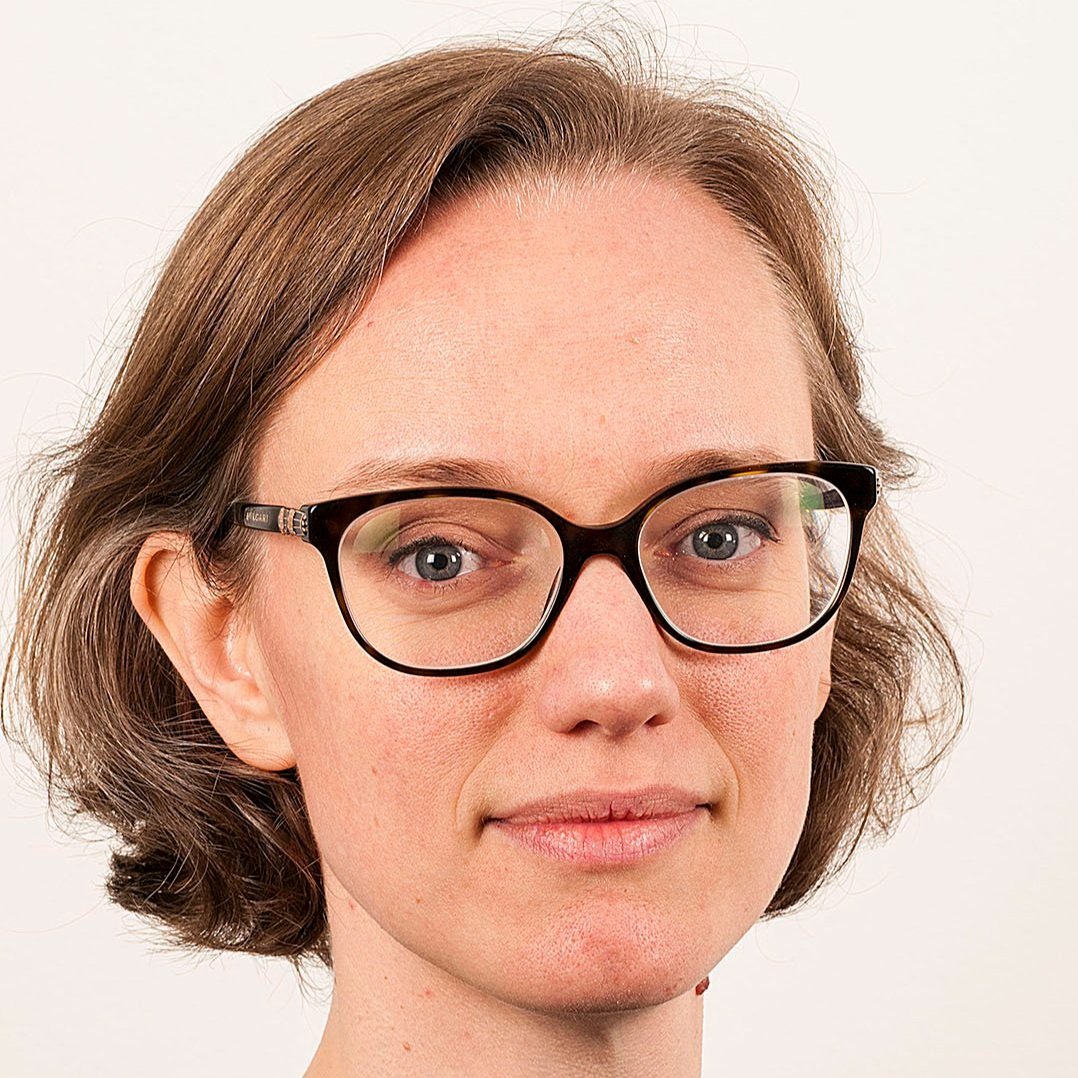Activities
Meet us at inspirational events focused on digitalization, culture and society, presented by expert researchers and professionals from outside the research sector. This page provides an overview of the academic activities available to DIGIT-participants.

Final Seminar for Class of 2023-2025
Final seminar for Class of 2023-2025
The Final Seminar of the DIGIT Class 2023–2025 will take place May 8-9. Over two days, you will receive insightful presentations from various speakers on how to navigate your career after your PhD/postdoc period. There will also be time for reflections and discussions together with your peers.
Final Seminar class of 2023-2025
When: May 8-9, 2025
Where: Holmen Fjordhotell
Registration: https://nettskjema.no/a/497129
Deadline for registration: April 1
Who is it for? DIGIT members from the class of 2023.
About the seminar
Over these two days you will get helpful presentations from different people on how you can move forwards after your PhD/postdoc, be it in academia, private- or public sector. There will also be set aside time for reflections and discussions together with your peers.
Program
Thursday May 8 - DAY 1 –Final Seminar
Holmen Fjordhotell, Slemmestadveien 64, 1394 Nesbru
12.00-13.15: Lunch
13.15-14.15: Career advancement and transitioning from PhD to working in academia
Hanna Marie Ihlebæk– Associate Professor, Østfold University College
Hanna Marie Ihlebæk holds a Ph.D. in the study of professions from Oslo Metropolitan University and is now an Associate Professor at Østfold University College. Her research focuses on ethnographic perspectives on professional work and knowledge, particularly in the digitalisation of the health and welfare sector.
14.15-14.30: Break
14.30-15.45: Career advancement and transitioning from PhD to working in public sector
Sigurd Jorem– Ministry of Education and Research
Sigurd Jorem has a PhD in philosophy and is now working as a project leader in the Ministry of Education and Research. Among other things, he leads a commission enquiring into AI in higher education.
15.45-16.00 Break
16.00-17.00: Walk and talk
Small group conversations about what we are working on now and future career plans
18-20.00 Dinner
Friday May 9 -DAY 2 –Final Seminar
Holmen Fjordhotell, Slemmestadveien 64, 1394 Nesbru
07:00-08.45: Breakfast including check out
08.45-10.15 Design and interdisciplinary digitalisation
Maja Van Der Velden– Professor, Department of Informatics, UiO
Maja’s field of research is Technology, Sustainability, and Society and she is particularly interested in the design and use of digital technologies and systems and the practices and impacts they help shape.
10.15-10.30: Break
10.30-11.30: Career advancement and transitioning from PhD to working in the private sector
Hallvard Kvale– Special Advisor on research and competency, Abelia
Hallvard Kvale is Special Advisor in Abelia, the business association of Norwegian knowledge- and technology-based enterprises within NHO (The Confederation of Norwegian Enterprise). He holds a Ph.D. from the University of Oslo in contemporary history. He has extensive experience as communications manager from the Norwegian Research Council, Oslo Science city, The Norwegian Biotechnology Advisory Board and the Institute of Social Research, among others. Director at Deloitte
11:30-11:45: Break
11:45-12:15 Evaluation of your 2-year DIGIT programme
Marit Haldar and Tina Svingerud - DIGIT
Marit Haldar is a professor of sociology at OsloMet and the director of DIGIT research school. Tina Svingerud is a senior advisor at OsloMet and the administrative coordinator for DIGIT resarch school.
From 12:15 Lunch
This is a residential lunch to lunch seminar. We will stay at Holmen Fjordhotell.
DIGIT covers travel and accomodation cost.
Programme committee
Torjus Solheim Eckhoff
DIGIT member and PhD research fellow at the University of Oslo
Eckhoff has a mixed disciplinary background with a Bachelor in geography from NTNU and a Master’s in Environment and Conflict Analysis from Aarhus University. In his PhD project, he is studying Official Norwegian Reports (NOU) and speeches in the Norwegian Parliament from the 1970s up until present to investigate technological imaginaries and how electronic data processing (EDP), information and communication technology (ICT), information technology (IT) and the digital have developed as objects of governance.
Vidar Bakkeli
DIGIT member and researcher at OsloMet
Bakkeli has a mixed social science background that includes social anthropology and sociology on bachelor level, science- and technology studies (STS) in his master degree and a ph.d. in social work and social policy. His main interests include public sector organisations, digitalisation, implementation studies, professionalism and institutional change.

Writing retreat with DIGIT
Writing retreat with DIGIT
Would you like to participate in a three-day workshop focused on academic writing?
The aim of this retreat is to bring participants together in a quiet environment to concentrate exclusively on scientific writing. The program will include dedicated time for active writing as well as peer-to-peer discussions in groups. Each participant will also receive personalized feedback on their text from the course leaders.
Writing Retreat
When: 21-23 May 2025
Where: Losby Gods
Application deadline: 1 April
Application: https://nettskjema.no/a/484013 Please note, your place is not reserved until you here back from us. We have limited capacity (12 spots).
Prerequisites: A paper draft (2000-4000 words), kappa draft or similar must be submitted in English or a Scandinavian language by May 15 at the latest.
Upload the text you will be working on here: https://nettskjema.no/a/484019-
The text should be a draft rather than a final version and should be between 2,000 and 4,000 words. If it exceeds this length, please clearly mark the 2,000–4,000 words you would like others to read.
The writing retreat is open for DIGIT members only. All reasonable costs (economy travel up to 2500 NOK) and full board at the hotel will be covered.
Content
The workshop is structured to provide you with dedicated and uninterrupted time for individual writing. In addition to focused sessions for drafting your text, the workshop will include peer-to-peer feedback sessions, walk-and-talk discussions, and personalized feedback from the course leaders. Participants will be organized into smaller writing groups, where you will present your paper to your colleagues and the course leaders. You will also serve as a discussant for the work of your fellow group members.
To maintain focus, we ask all participants to fully commit to the entire program and refrain from external obligations during the days.
The workshop will be led by director in DIGIT, Marit Haldar and one additional senior staff member in DIGIT.
Please scroll down to view the preliminary program.
Preliminary program
Wednesday May 21
12:00 - Departure bus from OsloMet (Stensberggata 38) - NB: time updated April 10
12:40 - Departure bus from Lillestrøm (Scandic Lillestrøm, Stillverksveien 28) - NB: time updated April 10
13.00 – 14.00: Lunch
14.00 – 14:15: How to give constructive feedback
14.15 – 16.00: Group work with paper presentation, discussion and feedback
16.00 – 16.30: Snack break
16.30 – 19:00: Writing-session
19:00 - 19:30: Break
19.30 -: Dinner
Thursday May 22
07.00 – 09.00: Breakfast
09.00 – 12.00: Writing-session
12.00 – 13.00: Lunch
13.00 – 17.00: Writing-session (snacks at 16:00)
17.00 – 19.00: Walk and talk with writing partners
19.00 –: Dinner
Friday May 23
07.00 – 09.00: Breakfast
09.00 – 11.00: Writing-session
11.00 – 12.30: Feedback and evaluation
12.30 - 13.30: Lunch
13:45 - Departure bus from Losby Gods
14:05 - Estimated* arrival Lillestrøm (Scandic Lillestrøm, Stillverksveien 28)
14:45 - Estimated* arrival OsloMet (Stensberggata 38)
* If there is heavy traffic, the bus ride may take longer.
Course leader
Marit Haldar is professor of sociology at OsloMet and the director of DIGIT. Throughout her research-career she has been concerned with ideology and cultural analysis of childhood, old age, gender, family and (social) technology. She has also studied marginalized subjects in the welfare state and inequalities in treatment in the health care system from an ideological perspective. Haldar has broad and long experience with most qualitative methods and has developed new methods that are discussed in highly regarded international method literature (see Silverman, D. 2011, "Interpreting qualitative data", 4th ed. London: Sage). She has held courses in qualitative methods and writing courses at least once a year since 2011 and has extensive experience in providing feedback on texts in both the humanities and social sciences.
Please feel free to contact the DIGIT coordinator should you have any questions.

Relevant course from our partners: TIK9025 – Innovation, Welfare and Policy
Relevant course from our partners: TIK9025 – Innovation, Welfare and Policy
Although the theme of the course is potentially relevant for a broad variety of different types of innovations, the course will specifically focus on, and discuss examples about automation and artificial intelligence technologies. These rapidly diffusing innovations have the potential to bring positive as well as negative impacts, and they therefore represent a relevant illustration of the conceptual perspectives presented in the course.
Course: TIK9025 – Innovation, Welfare and Policy
When: 22 – 28 May 2025
Where: Oslo/online
Registration deadline: 1 April 2025
Read more and register here: https://www.uio.no/studier/emner/sv/tik/TIK9025/
This is a course organized by our partners at the University of Oslo. For questions related to the course, contact them directly.
Course content
Innovation, welfare and policy: The case of automation and AI technologies
The field of innovation studies is typically based on the assumption that innovation is good for the economy, and that more innovations will lead to a wealthier and more sustainable economy and society. Since the 1980s, the underlying idea that has motivated the field is that innovation leads to positive economic effects, such as economic growth and employment creation, and does for this reason foster individuals’ welfare by leading to greater wealth. Innovation research has in fact almost exclusively focused on the positive economic effects of new technologies, and how these contribute to solve grand societal challenges, e.g. by spurring firms’ productivity, industries’ international competitiveness and sustainability transition, and the dynamics and performance of national systems. Relatedly, this research has also represented the foundation for R&D and innovation policies, whose underlying rationale has so far predominantly been to foster the creation and diffusion of innovations. More recent approaches, such as systemic and third generation mission-oriented innovation policy, are also implicitly based on the belief that innovations have the ability to address and solve grand societal challenges.
In spite of the importance and large consensus around the important positive effects of innovation, it is also worthwhile to consider that innovations can sometimes have unintended and negative consequences. The history of capitalism is full of examples of innovations that have led to damaging effects on individuals, social groups, and/or the natural environment. In general terms, it is most often the case that innovations and the process of "creative destruction" lead to positive effects for some and negative effects for others, although research has so far mostly focused on the former and often neglected the latter. Investigating the dark sides of innovation means to study its unintended and negative consequences, alongside its positive effects. In short, extant innovation research has adopted a narrow definition of social welfare, which focuses on positive economic performance and material well-being, and that mostly disregards the corresponding destruction effects, and therefore also distributional impacts of innovation.
This calls for new theoretical and empirical research in innovation studies, taking into account both positive and negative socio-economic effects of innovation, its bright and dark sides, and developing new conceptual and methodological tools to study, compare and assess multidimensional and contrasting effects of innovations in a broader interdisciplinary framework. This new departure will entail an in-depth discussion of how to value the societal effects of innovation, how to measure them, and how to assess their benefits and costs according to different ethical norms and theories of social justice. This is where innovation studies must cross-fertilize with, and draw inspiration from, other fields of research in which the social value of economic actions is explicitly investigated by means of social choice theories. Specifically, the course will provide insights from well-being studies and welfare economics, and show how these fields can enrich our understanding of the effects of innovation on social welfare.
The first part of this course will discuss the notion of individual well-being, and how different types of innovation affect this. The discussion will adopt a broad notion of agents’ well-being that comprises also non-economic factors and capabilities alongside income and material wealth. The second part of the course will shift the focus to the notion of aggregate social welfare, present different theories of social justice, and discuss how to take into account the distributional impacts of technological progress. This part will show that the impacts of innovation are characterized by complex trade-offs between efficiency and equity, both in the short- and in the long-run, which are often neglected in extant research. The third part of the course will analyze the implications of these for the rationale and foundations of R&D and innovation policy. Since innovations have complex and multi-dimensional effects - positive and negative; economic and non-economic - how can policy-makers assess and define whether a given innovation should be given public support, or instead regulated and limited? The multi-dimensional and complex nature of innovation presents policy-makers with a variety of trade-offs and complex choice sets, which call for the development of new tools of social choice analysis.
Although the theme of the course is potentially relevant for a broad variety of different types of innovations, the course will specifically focus on, and discuss examples about, automation and artificial intelligence technologies. These rapidly diffusing innovations have the potential to bring positive as well as negative impacts, and they therefore represent a relevant illustration of the conceptual perspectives presented in the course.
Lecturers:
Fulvio Castellacci (University of Oslo), Milena Nikolova (University of Groningen), Tommaso Ciarli (University of Maastricht), Paolo Piacquadio (University of St. Gallen).

Conference: Digtaliseringskonferansen 2025
Conference: Digitaliseringskonferansen 2025
Digitaliseringskonferansen (The Digitalization Conference), organized by the Norwegian Digitalization Agency (DigDir), is considered one of Norway’s most important arenas for digitalization in the public sector. It is organized annually and brings together politicians, bureaucrats, researchers, technologists, and industry representatives to discuss how digital technology can improve public administration and services.
DigDir is a partner in the DIGIT Research School, and we now offer a select group of DIGIT members an opportunity to attend with all costs covered.
Digitaliseringskonferansen 2025
Date: June 11-12, 2025
Location: Clarion Hotel The Hub in Oslo
Apply for a place: https://nettskjema.no/a/515562
Deadline for application: April 22
Language: Norwegian
We cover the conference fee, and costs related to travel and accommodation. The offer is open for DIGIT members only, and we have a limited available places.
About the conference
The Digitalization Conference (digitaliseringskonferansen) organized by The Norwegian Digitalization Agency (DigDir), is considered one of Norway’s most important arenas for digitalization in the public sector. It is organized annually, and brings together politicians, bureaucrats, researchers, technologists, and industry representatives to discuss how digital technology can improve public administration and services.
The conference covers topics such as artificial intelligence, digital infrastructure, data privacy, cross-sector collaboration, and how new technology can make it easier for citizens and businesses to interact with the public sector.
This year’s topic is the most recent national digitalization strategy (Fremtidens digitale Norge).
The conference offers an opportunity to gain insight into how key stakeholders approach digitalization and its impact on society and public administration. It also provides a great platform for networking and learning more about current initiatives and challenges.
About DigDir
The Norwegian Digitalization Agency (DigDir) is the national authority responsible for promoting and coordinating digital transformation in the Norwegian public sector. It works to improve digital public services, streamline administration, and ensure efficient collaboration between government agencies, businesses, and citizens.
DigDir provides guidelines, infrastructure, and support for digital solutions, including electronic IDs, secure data sharing, and AI-driven services. It also manages key initiatives such as Altinn (the national digital service platform).
Please feel free to contact the DIGIT coordinator if you have any practical questions.

PhD summer school on socio-material transformations
PhD School on Socio-material Transformations – Trondheim, Norway 16.-20. June 2025
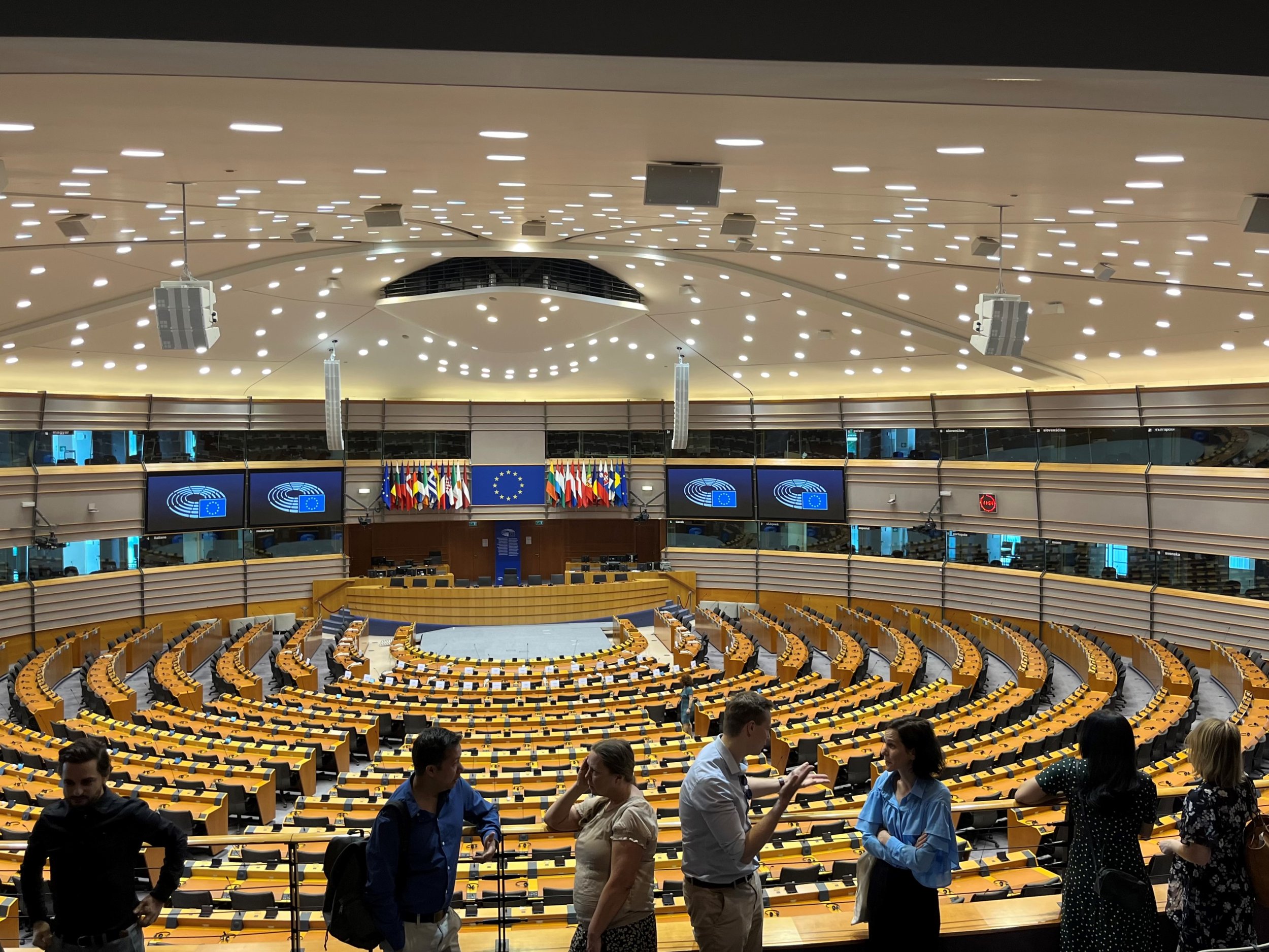

Arendalsuka 2025
Arendalsuka 2025
Arendalsuka is an annual event held in Arendal every August. It is Norway’s largest political gathering, and serves as a meeting place for anyone interested in societal issues, politics, and community engagement. The event has a diverse program of debates, panel discussions, lectures, and exhibitions, all aimed at fostering open dialogue and democratic participation.
For the first time, DIGIT research school plans to attend! If you are a member, apply for a place below.
Arendalsuka 2025
Date: August 11-15, 2025
Location: Arendal
Apply here: https://nettskjema.no/a/516229
Deadline for application: April 29
Language: Norwegian
We cover costs related to travel and accommodation. The offer is open for DIGIT members only, and we have a limited available places.
Arendalsuka/Foto: M. Hauglid
About Arendalsuka
Arendalsuka is an annual event held in Arendal every August. It is Norway’s largest political gathering, and serves as a meeting place for anyone interested in societal issues, politics, and community engagement. The event has a diverse program of debates, panel discussions, lectures, and exhibitions, all aimed at fostering open dialogue and democratic participation.
The five days in Arendal offer a unique opportunity to observe and engage with politicans, societal actors and variours stakeholder. All over Arendal, there will be numerous sessions on topics such as digitalization, climate change, healthcare, and education, offering an opportunity to conntect to the public perspective on current societal challenges and approaches used to addressing them.
In recent years, Arendalsuka has extensively covered topics pertinent to DIGIT's thematic areas, including artificial intelligence, data sharing, and collaborative digital initiatives.
Program
The program for the event can be found here: https://www.arendalsuka.no/programsok/.
We have not finialized yet the specific plans for DIGIT. One approach is to have a free and flexible framework where each participant select and attend events that align with their individual interests. Another possibilityis to collaborate with relevant stakeholders and contribute to their events.
The final plans will be developed in collaboration with the registered participants.
Accommodation and Travel
Participants are responsible for arranging their own accommodation and travel. It can be challenging to find accomodation in Arendal during this week. It may be practical to book rooms in nearby towns with public transport connections to Arendal. Alternatively, forming groups to rent private accommodations could be another option. Once registrations are complete, we will facilitate communication among participants to coordinate accommodation if desired.
Please feel free to contact the DIGIT coordinator if you have any practical questions.
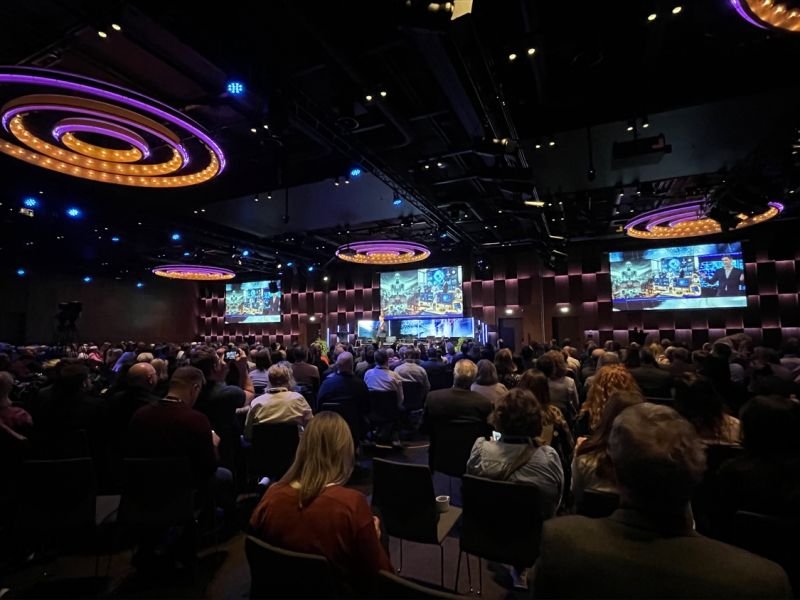
Conference: eKommune 2025
Conference: eKommune 2025
eKommune is Norway's leading conference for digital transformation and innovation in the municipal sector. Organized by KS, the Norwegian Association of Local and Regional Authorities, this year's theme is Municipalities in the storm – Frontline in a digital age.
KS is a partner in the DIGIT Research School, and we now offer a select group of DIGIT members an opportunity to attend.
eKommune 2025
Date: April 9-10, 2025
Location: Clarion Hotel The Hub in Oslo
Apply for a place: https://nettskjema.no/a/479886
Deadline for application: Feb 19
Language: Norwegian
The offer is open for DIGIT members only
About eKommune 2025
eKommune is one of Norway's key conferences for digital transformation, innovation, and public sector development. Organized by KS, the Norwegian Association of Local and Regional Authorities, the 2025 theme is Municipalities in the storm – Frontline in a digital age. Topics include artificial intelligence (AI) in public services, digital transformation in education, and strategies for effective resource use in health care. The conference gathers experts, leaders, and policymakers, offering a vital arena for knowledge sharing and networking.
The conference will be held in Norwegian.
Read more about the conference and this year's program here: https://www.ks.no/fagomrader/digitalisering/styring-og-organisering/ekommune-2025-kommune-i-stormen---forstelinje-i-en-digital-tid/
About KS
KS (Kommunesektorens organisasjon) is the Norwegian Association of Local and Regional Authorities. It represents all of Norway’s municipalities and counties, serving as a key interest organization and employer association for the municipal sector.
Financial Support
DIGIT will cover the participation fee, travel expenses (up to 2000 NOK), and accommodation for 4-5 selected members. Participants are responsible for booking their own flights or train tickets, in line with their university's travel guidelines and the Personnel Handbook for State Employees.
Please feel free to contact the DIGIT coordinator if you have any practical questions.

Relevant course from our partners: Current Trends in eHealth Perspectives
Relevant course from our partners: Current Trends in eHealth Perspectives
The definition of eHealth is constantly evolving, and this course aims to introduce students to the vast area of eHealth and the research frontier of the field. We will invite critical reflection on the impact of eHealth on the future of healthcare, on society and on the users of eHealth – both health care workers and end-users. eHealth is multidisciplinary in nature and aims to equip the global audience of health clinicians, students, managers, administrators, and researchers to reflect on the overall impact of eHealth on the integration of care.
This is a course organized by our partners at the University of Southeast Norway (USN). For questions related to the course, contact USN directly.
Current Trends in eHealth Perspectives
When: By physical presence: March: 26.-27th April: 29-30th. Digital attendance: May 27th, 2025.
Where: Drammen/online
ECTS: 5
Registration deadline: 1 March 2025 (external candidates)
Registration
Read more and register here:
Content
The demographic prospects, increasing inequalities, and rising cost in the health care and welfare system represent challenges that require interdisciplinary research and innovation. Increased use of e-health will contribute to meet these challenges. At the same time, this is a novel area that requires new knowledge and new knowledge combinations as well as a critical research approach.
The definition of eHealth is constantly evolving, and this course aims to introduce students to the vast area of eHealth and the research frontier of the field. We will invite critical reflection on the impact of eHealth on the future of healthcare, on society and on the users of eHealth – both health care workers and end-users. eHealth is multidisciplinary in nature and aims to equip the global audience of health clinicians, students, managers, administrators, and researchers to reflect on the overall impact of eHealth on the integration of care.
Learning outcome
Knowledge
have in-depth knowledge and critical understanding of scientific excellence in the multidisciplinary field of eHealth, in which the various participating disciplines have different research orientations
have in-depth knowledge and critical understanding of ontological assumptions, and epistemological preferences within the field of eHealth
have in-depth knowledge and critical understanding of ethical, data security and social challenges raised by widespread use of eHealth technology
have in-depth knowledge and critical understanding of how emerging technological trends impact society, organizations and individuals
Skills
can critically reflect on current trends and innovative approaches in using eHealth in organizations
can navigate the landscape of eHealth as part of the health and welfare sector and benefit from its diversity
Can provide and apply constructive feedback on one’s own and others work to enhance/strengthen further development/work
General competence:
can describe and explain underlying assumptions made in studying eHealth.
can apply knowledge and skills in new areas of eHealth.
can communicate eHealth topics, analyses and conclusions to both specialists and general audiences.
can contribute to new trends and innovative ideas within the field of eHealth.


2-day DIGIT workshop: Advanced Methods in social science research on digitalization
DIGIT course: Advanced Methods in social science research on digitalization” at the University of Agder.
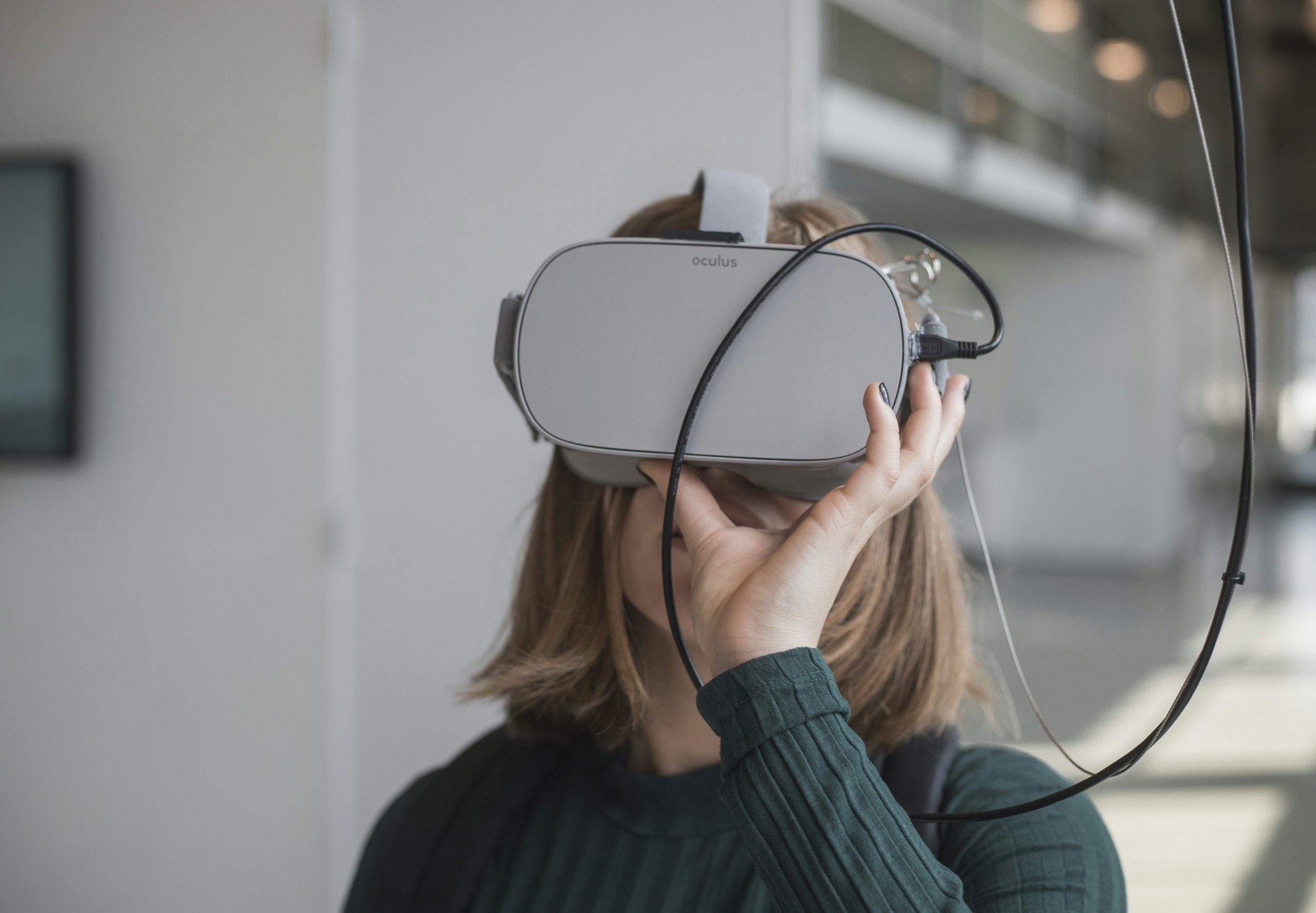

Writing retreat with DIGIT
Writing retreat with DIGIT
Would you like to participate in a three-day workshop focused on academic writing?
The aim of this retreat is to bring participants together in a quiet environment to concentrate exclusively on scientific writing. The program will include dedicated time for active writing as well as peer-to-peer discussions in groups. Each participant will also receive personalized feedback on their text from the course leaders.
Writing Retreat
at Rømskog hotel
When: 11-13 December 2024
Application deadline: 15 October 2024
Application: https://nettskjema.no/a/441078. Please note, your place is not reserved until you here back from us. We have limited capacity (12 spots).
Prerequisites: A paper draft (2000-4000 words), kappa draft or similar must be submitted in English or a Scandinavian language by Desember 2 at the latest. Please upload your draft here: https://nettskjema.no/a/441079
The writing retreat is open for DIGIT members only. All reasonable costs (economy travel up to 2500 NOK and full board at Rømskog Spa and Resort) will be covered.
Content
The workshop is structured to provide you with dedicated and uninterrupted time for individual writing. In addition to focused sessions for drafting your text, the workshop will include peer-to-peer feedback sessions, walk-and-talk discussions, and personalized feedback from the course leaders. Participants will be organized into smaller writing groups, where you will present your paper to your colleagues and the course leaders. You will also serve as a discussant for the work of your fellow group members.
To maintain focus, we ask all participants to fully commit to the entire program and refrain from external obligations during the days.
The workshop will be led by Marit Haldar from OsloMet and Kari-Steen Johnsen from the Institute for Social Research in Oslo.
Please scroll down to view the preliminary program.
See program (PDF download)
Course leader
Marit Haldar is professor of sociology at OsloMet and the director of DIGIT. Throughout her research-career she has been concerned with ideology and cultural analysis of childhood, old age, gender, family and (social) technology. She has also studied marginalized subjects in the welfare state and inequalities in treatment in the health care system from an ideological perspective. Haldar has broad and long experience with most qualitative methods and has developed new methods that are discussed in highly regarded international method literature (see Silverman, D. 2011, "Interpreting qualitative data", 4th ed. London: Sage). She has held courses in qualitative methods and writing courses at least once a year since 2011 and has extensive experience in providing feedback on texts in both the humanities and social sciences.
Course leader
Kari Steen-Johnsen works as a Research Professor at the Institute for Social Research in Oslo.
She is a political sociologist, who is interested in the conditions for democratic participation in the broad sense, emphasizing the consequences of digitalization and social media. Her research includes themes such as political mobilization and organization, citizen’s news use and political knowledge, as well as public debate and the freedom of speech.
Methodologically, Steen-Johnsen has used both survey methods and qualitative interviews, and she has also led projects using digital trace data.
Please feel free to contact the DIGIT coordinator should you have any questions.
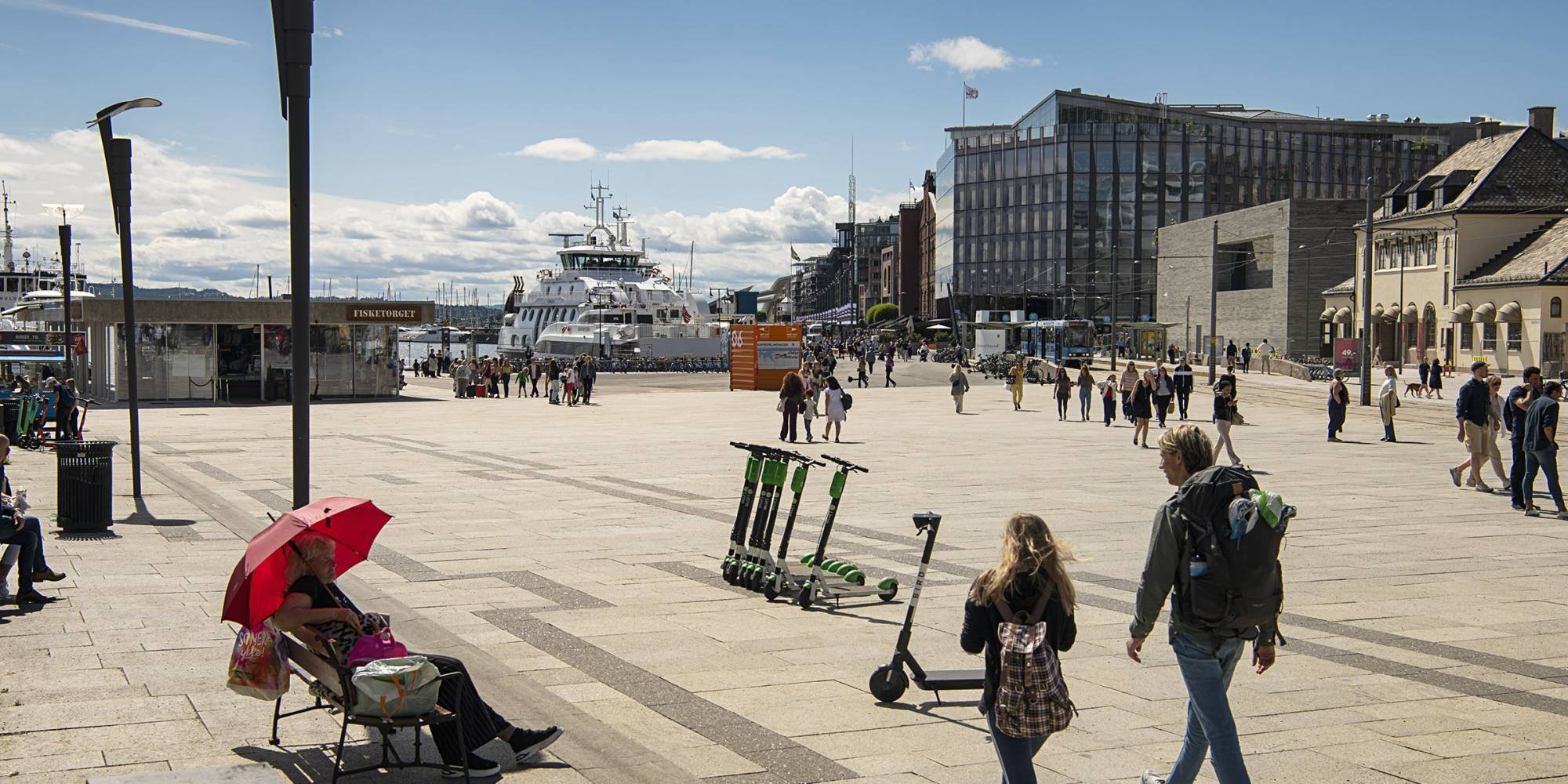

3-day DIGIT course: : Qualitative analysis and theory development using Stepwise-Deductive Induction (SDI)
Qualitative analysis and theory development using Stepwise-Deductive Induction (SDI)

Kick off-course on Digitalization, Culture and Society for Class of 2024
Welcome to the DIGIT-kick off course for class of 2024! Members and partners meet for lectures, group discussions and presentations.

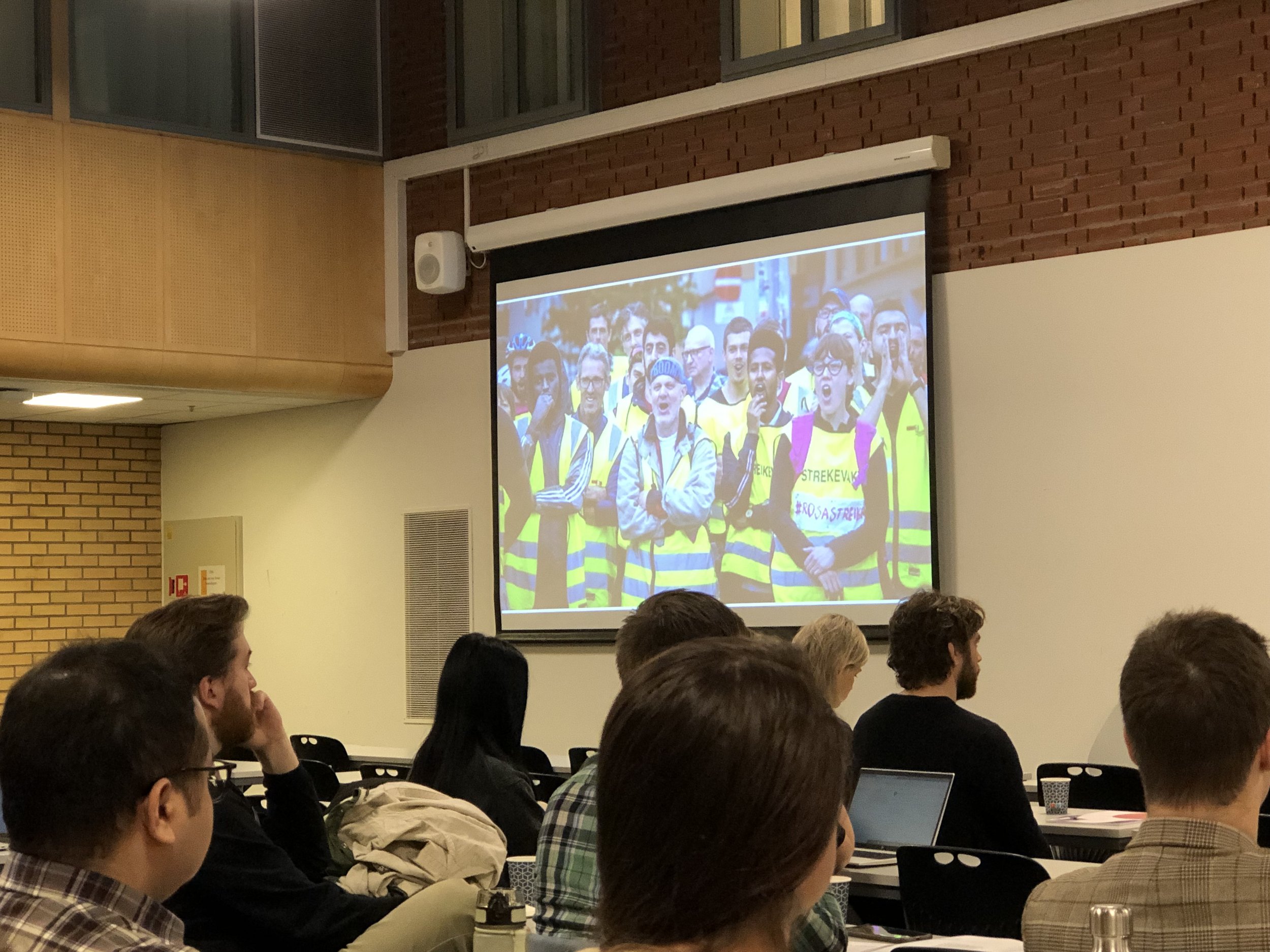
2-day DIGIT course: Digitalization and the world of work
Digitalization and the world of work

The World as a Testbed — Online Reading Group
The World as a Testbed — Online Reading Group
There is a general trend in industry and research to make society “AI ready” which also became an important concern in government. This is often accompanied by an accelerated implementation of AI into different societal settings and governmental operations itself, in which fast implementations and real-world scenarios became the testing ground for such technologies. But how do we study those new and fast innovation movements and its impact on society from an STS and social science perspective?
Over three online meetings we will read several of Noortje Marres’ work on the societal impact of tech testing and trials as well as some supporting articles which her work draws from. In the final meeting Marres will join us online.
The group is organized in collaboration with the TIK center at the University of Oslo, and it is part of this years TIK 25 anniversary.
Online Reading Group
When:
Sep 27 - Session 1 - 14:00-15:00 Introduction
Oct 11 - Session 2 - 14:00-15:00 Theory / Concepts
Oct 28 - Session 3 - 14:00-15:00; AI and testing with Noortje Marres
Where: Zoom
Registration: https://nettskjema.no/a/443562
Who is it for? The reading group is primarily for participants of the DIGIT research school. However, unless there is an overwhelming turnout, it is open to others as well.
Content
There is a general trend in industry and research to make society “AI ready” which also became an important concern in government. This is often accompanied by an accelerated implementation of AI into different societal settings and governmental operations itself, in which fast implementations and real-world scenarios became the testing ground for such technologies. But how do we study those new and fast innovation movements and its impact on society from an STS and social science perspective?
Since it can be challenging as a social scientist to study the changes that occur in our research field, we thought to initiate a research group and discuss such problems with Noortje Marres, Professor in Science, Technology and Society in the Centre for Interdisciplinary Methodologies at the University of Warwick. She has written extensively on issues of digital technologies and testing
In this reading group we want to get better acquainted with Marres´ work on the societal impact of tech testing and trials. Over three meetings we will read several of Marres articles, as well as some supporting articles which her work draws from. In the final meeting Marres will join us online. Here she will provide a brief introduction to her work and address any questions we may have."
How do I participate?
Sign up through the link above to receive a zoom invitation and ascribed literature. Then, read the assigned texts, and prepare some reflections on how these readings can illuminate your own field of study/empirical material (if applicable). We know that people come from different disciplines and might have little or no knowledge of Marres work from beforehand, but this is open for everyone and should be a space for intellectual exploration. So tag along!
Program and readings
1. Session; Introduction (27.09, 14:00-15:00)
Orit Halpern (2019) The Planetary Test
Marres (2020) Put to the test: For a new sociology of testing
Additional reading;
Marres (2017) How to think sociologically about the digital society?
Grill (2022) Constructing Certainty in Machine Learning: On the performativity of testing and
its hold on the future.
2. Session; Theory / Concepts (11.10, 14:00-15:00)
Marres (2024) How tech trials test society: trials of implicitness (innovation eco-systems)
Additional reading;
Rouvroy (2013) The end(s) of critique
Star (1989)
3. Session; AI and testing with Noortje Marres (TBA: most likely a date between 28.10-01.11)
Marres (2024) AI as super-controversy: Eliciting AI and society controversies with an extended expert community in the UK
Additional reading;
Louise Amoore (2023) Machine learning political orders
Baumer et.a. (2024) Algorithmic Subjectivities
Goal of the reading group
Get acquainted with the work of Noortje Marres
Learn methods and approaches to studying the digital through an STS and sociological perspective.
Learn how to study digital technologies "beyond the laboratory" and the diverse forms of testing in societal settings as critical interfaces between science, engineering, nature and society.
Contributor
Noortje Marres
Noortje Marres is a Professor in Science, Technology and Society in the Centre for Interdisciplinary Methodologies at the University of Warwick.
Organizers
The reading group is organised by Tanja Knaus and Torjus Solheim Eckhoff, both PhD candiates at the TIK centre, in collaboration with DIGIT, and it is part of this years TIK 25 anniversary.
Please feel free to contact the DIGIT coordinator should you have any questions.

Qualitative Method (SP9100)
Qualitative Method (SP9100)
Data production, applied theory, and analysis strategies. How do we make it all fit together well? This course will provide a solid orientation on some traditions and approaches that are referred to as qualitative research and their epistemological basis.
Qualitative Method (SP9100)
When: June 3-5 2024, and on day in the autumn
Where: OsloMet, Norway
Registration deadline: May 1
Language: Norwegian
Registration and full description: https://www.oslomet.no/studier/sam/phd-sam/kvalitativ-metode-sosialfag-phd
ECTS: 10
Course leaders: Marit Haldar and Wenche Bekken
Travel and accommodation
DIGIT members can apply for funding for travel and accommodation to attend the course. You can send in your application here: https://nettskjema.no/a/322611.
Ranking of applicants
Qualitative Method (SP9100) is part of the OsloMet course catalogue.
In the event of receiving more applications than available spots preference will be given firstly to candidates enrolled in the doctoral program in social sciences at OsloMet, followed by candidates affiliated with the DIGIT Research School, candidates from other programs at OsloMet and finally Ph.D. candidates from institutions outside of OsloMet.
About the course
Read the full course description here: https://www.oslomet.no/studier/sam/phd-sam/kvalitativ-metode-sosialfag-phd

CEDIC Talks webinar: «Digitalisation and perceived job insecurity: A machine learning study in Norway»
Join the online guest lecture

Conference: eKommune 2024 - Human and Technology
Conference: eKommune 2024 - Human and Technology
How will technology, as part of the solution to major societal challenges, impact people and the interaction between us? This is one of the topics at the eKommune conference on April 18-19.
Would you like to attend the conference? KS, partner in DIGIT research school, is sponsoring two spots at this year's conference!
Date: April 18-19, 2024
Location: Clarion Hotel The Hub in Oslo
Apply for a place: https://nettskjema.no/a/404886
Deadline for application: Feb 26
Language: Norwegian
The offer is open for DIGIT members only
About eKommune 2024
eKommune is the most important meeting place for anyone interested in digitization, transformation, and innovation in the municipal sector. More and more public and private services are being digitized, and artificial intelligence as part of technological development is increasingly affecting us in new ways. How does this affect task execution – and citizens, employees, and leaders in the public sector?
In 2024, the conference will be held on April 18-19 at the Clarion Hotel The Hub in Oslo city center. Participation is also possible online.
Read more about the conference and this year's program here: https://www.ks.no/fagomrader/digitalisering/styring-og-organisering/ekommune-2024-menneske-og-teknologi/
The text above is taken from the KS website.
About KS
The Norwegian Association of Local and Regional Authorities (KS) is the organisation for all local governments in Norway. KS is Norway’s largest public employer organisation.
Financial Support
The conference fee is covered for two DIGIT members by KS. For DIGIT participants residing outside Oslo, DIGIT will cover travel expenses. You are responsible for booking your own flight/train tickets in accordance with your university's guidelines and the Personnel Handbook for State Employees. We cover up to 2000 NOK for travel.
Please feel free to contact the DIGIT coordinator if you have any practical questions.

Final Seminar for Class of 2022-2024
DIGIT invites the DIGIT class of 2022 to a final seminar at the historic Granavolden Hotel & Guesthouse. The seminar is organized by the DIGIT members themselves and marks the conclusion of DIGIT's inaugural class!
Final Seminar
When: April 8-9, 2024
Where: Granavolden Hotel and Guesthouse
Registration: https://nettskjema.no/a/393935 (Deadline: February 9)
About the seminar
The program will comprise a two-day event with presentations from speakers inside and outside academia, group discussions, social activities and delicious food from the area. Day 1 will involve sessions on surviving in academia and transitioning to non-academic roles, as well as a discussion and a walk and talk before the dinner. Day 2 will involve breakfast, short presentations, group discussions focusing on the future use of DIGIT, and a concluding discussion and feedback session before lunch.
We start at lunch day 1 and will depart for Oslo after lunch day 2.
DIGIT covers travel and accomodation costs for our members.
About Granavolden
Granavolden Hotel & Guesthouse is beautifully situated on a hill in the distinctive landscape of Hadeland, only about an hour’s drive from Oslo or a 50 minute drive from Oslo Airport, Gardemoen.
The hotel is located on historic ground, and there has been a guest house at Granavolden since 1657.
Organisers
Martine Stecher Nielsen
DIGIT member and PhD research fellow at NTNU
Nielsen has an educational background in public and global health and moved to Norway from Denmark in 2018. Equality in health and health care drives her professional interest and she focuses on how digitalization can be used to support and empower patients. Her doctoral thesis assess’ how patient portals can be used for adolescents in mental health care.
Alejandro Miranda-Nieto
DIGIT member and former postdoc fellow at OsloMet
Miranda-Nieto is a sociologist with interests spanning home, migration, mobilities and social practice. His research uses ethnography and other qualitative and quantitative methods to study social change. He is currently researching how migrant professionals working in IT industries develop a sense of home in the city of Oslo.
Miranda-Nieto has recently transitioned from a postdoc position to Head of academic unit Service organization and innovation in social work and child welfare at OsloMet.

CEDIC Talks webinar: Media Poverty: Media Use and Citizenship in Conditions of Deprivation
Join the online guest lecture

3-day academic writing retreat with DIGIT
3-day academic writing retreat with DIGIT
Welcome to the writing retreat hosted by NORD university in Saltstraumen, Bodø! The retreat is designed to give you a break away from daily commitments to provide protected time for individual writing. We will be staying in a small hotel close to the tidal current, with excellent food and spectacular views of the Børvasstindan mountains.
Are you interested in joining the retreat? We only have 12 spots, please register your interest below!
Writing Retreat
at Saltstraumen Hotel
When: 13-15 February 2024
Registration deadline: 9 January 2024
Registration: https://nettskjema.no/a/388294 (Your place is not reserved until you hear back from us)
Prerequisites: A paper draft (2000-4000 words) must be submitted in English or a Scandinavian language by 1 February at the latest. Please upload your draft paper draft here: https://nettskjema.no/a/388297
The writing retreat is available to DIGIT members from the classes of 2022 and 2023. In the event of receiving more applications than available spots, our priority will be determined primarily by motivation and the perceived need for participation in the writing retreat.
DIGIT will cover economy travel and full board at the hotel.
Content
The workshop is designed to give you a break away from daily commitments to provide protected writing time for individual writing. Besides time for active writing of individual draft papers there will be time for peer-to-peer feedback sessions, walk-and-talk, as well as receiving feedback and guidance from the course leaders.
You will be allocated writing partners in groups of three. You present your individual work to your fellow colleagues and to the course leaders, and additionally act as discussant of the work of the two other group members.
The aim is to create an inclusive and safe social group dynamic, where we discuss each other’s work and inspire each other with engaged, constructive and respectful feedback. As the participants in the workshop will follow an all-day program, we require participants to join the complete program and put aside other commitments during the stay to protect the concentration and the time dedicated to our writing.
The workshop will be led by Anne-Jorunn Berg and Robert Bye. Read more about their background below.
Scroll down to view the preliminary program.
About Bodø and Saltstraumen
Bodø is located just north of the Polar Circle in a Pite and Lule Sami area. The city is elected the 2024 cultural capital of Europe.
Saltstraumen is an impressive sight (see more at visitbodo.com or Wikipedia). We will be staying in the small Saltstraumen hotel close to the tidal current, with excellent food and spectacular views of the Børvasstindan mountains.
Preliminary program
Tuesday 13. February
10:30 Collective departure from Bodø airport
11.30 – 12.30 Lunch
12:30 – 12:45 Brief presentation and information
12:45 - 13:00 How to give constructive feedback
13:00 – 15.00 Group work with paper presentation, discussion and feedback
15.00 – 15.30 Snack break
15.30 – 19.30 Writing-session
19.30 Dinner
Wednesday 14. February
08:00 – 09:00 Breakfast
09:00 – 12:00 Writing-session
12:00 – 13:00 Lunch
13:00 – 14:30 Walk and talk with writing partners – strongest maelstrom at 14:00
14:30 – 16:00 Writing-session
16:00 – 16:30 Snack break
16:30 – 19.00 Writing session
19.00 - Dinner
Thursday 15. February
08.00 – 09.00 Breakfast
09.00 – 12.00 Writing-session
12:00 – 13.00 Lunch
13:00 – 15:00 Group work discussion, feedback and evaluation
15:00 - 15:30 Collective feedback and evaluation
15:30 Collective departure to the airport
Course leader
Anne-Jorunn Berg is a Professor at the Faculty of Social Sciences, Nord University. Her areas of expertise include Gender Studies, Science Technology Studies (STS), Feminist Theory, Information and Communication Technologies (ICT), Research Methods, and Postcolonial Theory. Berg's research focuses on areas such as methodology, ICTs, materialities, and gender. Her work is particularly concerned with knowledge production - especially scientific knowledge. She is interested in knowledge as a collective transdisciplinary project, the usefulness of thinking knowledge in the plural as knowledges, the strength of partial perspectives, material heterogeneity and the importance of situating our knowledge. Her research is inspired by the works of biologist and feminist science theorist Donna Haraway, with a particular focus on using Haraway’s concepts of "material semiotics" and "companion species” as tools for exploring lived life (human as well as non-human). Berg sits as the chairperson of the DIGIT board.
Course leader
Robert Bye is an Associate Professor at Nord University at the Faculty of Social Sciences. He served as Vice Dean for Education from 2020 to 2021. Bye obtained his Ph.D. in science and technology studies from NTNU in 2008. His research has focused on use, user involvement and domestication of buildings and in building processes. Currently, his research interests are also focused on different aspects of knowledge and knowledge production and the role of large language models, as well as understandings of digitalization and technology in knowledge-intensive work. These topics are also reflected in his teaching in two master programmes at Nord university, Master of knowledge management and master’s in Social Analysis.
Please feel free to contact the DIGIT coordinator should you have any questions.

CEDIC Talks webinar: Digital consultations in general practice in Denmark
Join the online guest lecture

From our partners: Book launch in Oslo - Making Information Matter
Join the online guest lecture

Kick off-course on Digitalization, Culture and Society for Class of 2023
Welcome to the DIGIT-kick off course for class of 2023! Members and partners meet for lectures, group discussions and presentations.

ME-638-1: Advanced Methods in social science research on digitalization
DIGIT course: Advanced Methods in social science research on digitalization” at the University of Agder.

CEDIC Talks webinar: Digitalization in disability organizations: legal, moral, and organizational challenges
Join the online guest lecture


DIGIT course on Rights and Freedoms in Digital Design
Welcome to the DIGIT "Rights and Freedoms in Digital Design" course, running from May 30-31 2023 at the University of Bergen.

CEDIC Talks webinar: Statistical profiling of the unemployed: a literature review and the case of Denmark
Join the online guest lecture

Writing retreat with DIGIT
Writing retreat with DIGIT
Would you like to participate in a 3-day workshop dedicated to your academic writing? As a member of DIGIT, you are invited to join our very first writing retreat that will take place at the charming Jeløy Radio hotel in Moss. The idea is to come together in a quiet environment and focus entirely on our scientific writing. We will have time for both active writing and for peer-to-peer discussions in groups. Additionally, every participant will receive feedback on their paper from the course leaders.
Are you interested in joining the workshop? We only have 12 spots for this retreat, so please register ASAP to save your place!
Writing Retreat
at
Jeløy Radio Hotel
When: 17 - 19 April 2023
Registration deadline: 8 March 2023
Registration: https://nettskjema.no/a/305372 (Your place is not reserved until you here back from us)
Prerequisites: A paper draft (2000-4000 words) must be submitted in English or a Scandinavian language by 3 April at the latest. Please upload your draft paper draft here: https://nettskjema.no/a/305375
The writing retreat is open for DIGIT members only. All reasonable costs (economy travel and full board at the hotel) will be reimbursed.
Content
This is a workshop designed to give the participants a break away from daily commitments to get protected writing time and to focus on their individual writing.
The program is designed with allocated time slots for active writing where participants spend time on their individual draft paper. Since we have three days together, there will also be time for peer-to-peer feedback sessions and to receive feedback and guidance from the course leaders.
As a participant, you will be allocated writing partners in groups of three. You present your individual work to your fellow colleagues and to the course leaders, and additionally act as discussant of the work of the two other group members.
The aim is to create an inclusive and safe social group dynamic, where we discuss each other’s work and inspire each other with engaged, constructive and respectful feedback. Since the participants in the workshop will follow an all-day program, we require that participants join the complete program and put aside other commitments during the stay to protect the concentration and the time dedicated to our writing.
The workshop will be led by Marit Haldar and Hilde Reinertsen. Read more about their background below.
Preliminary program
Monday 17. April
13.00 – 14.00 Lunch
14.00 – 14:15 How to give constructive feedback
14.15 – 16.00 Group work with paper presentation, discussion and feedback
16.00 – 16.30: Snack break
15.30 – 19.30: Writing-session
19.30: Dinner
Tuesday 18. April
07.00 – 09.00: Breakfast
09.00 – 12.00: Writing-session
12.00 – 13.00: Lunch
13.00 – 17.00: Writing-session
17.00 – 17:30: Snack break
17:30 – 19.00: Walk and talk with writing partners
19.00 - Dinner
Wednesday 19. April
07.00 – 09.00: Breakfast
09.00 – 11.00: Writing-session
11.00 – 12.30: Feedback and evaluation
12.30 Snacks before departure
Course leader
Marit Haldar is professor of sociology at OsloMet and the director of DIGIT. Throughout her research-career she has been concerned with ideology and cultural analysis of childhood, old age, gender, family and (social) technology. She has also studied marginalized subjects in the welfare state and inequalities in treatment in the health care system from an ideological perspective. Haldar has broad and long experience with most qualitative methods and has developed new methods that are discussed in highly regarded international method literature (see Silverman, D. 2011, "Interpreting qualitative data", 4th ed. London: Sage). Haldar has led courses in qualitative methods and writing courses at least once a year since 2011. She has extensive experience in providing feedback on texts in both the humanities and social sciences.
Course leader
Hilde Reinertsen is a researcher at the Centre for Technology, Innovation and Culture (TIK) at the University of Oslo.
Reinertsen’s academic interests span from the relationship between knowledge and politics, and how different forms of knowledge production shape politics and society at large. She has investigated topics within the history of politics and public administration, the history of science, environmental history, development studies, energy, aquaculture, petroleum, evaluation and audit. She is the principal investigator of the research project “Evaluation Optics of the Nation State: The Past, Present and Future of Public Documentation” (EVALUNATION). This project builds on her former Phd project on the history of evaluation reports and how these are written, read and discussed in society. A key part of the research project and Reinertsen’s previous work is to develop an interdisciplinary method for document analysis that combines historical, rhetorical, sociological and digital methods with approaches developed within the field of Science and Technology studies.
Reinertsen has co-written the textbook Doing document analysis: A practice oriented method (SAGE Publishing 2020) with Kristin Asdal, which is an expanded version of the Norwegian original: Hvordan gjøre dokumentanalyse: En praksis-orientert metode (Cappelen Damm 2020).
Please feel free to contact the DIGIT coordinator should you have any questions.

CEDIC Talks webinar: The Struggle for Web Accessibility by Persons with Disabilities in the US with Professor Peter Blanck
Join the online guest lecture with Dr. Peter Blanck from Syracuse University on disability law and policy in the US.

CEDIC Talks webinar: The digital welfare eco-system with Professor Jacqueline O'Reilly
Join the online guest lecture with Professor Jacqueline O’Reilly from the University of Sussex Business School.

CEDIC Talks: Technological change as social practice - the case of video consultations
Welcome to the second edition of CEDIC Talks this spring semester, where we invite national and international researchers to hold open guest lectures on social and political consequences of digitization.
The Research Centre for Digitalisation of Public Services and Citizenship (CEDIC) is the host institution for the research school DIGIT. CEDIC has a monthly lecture series called CEDIC Talks, where they aim to broaden our knowledge and awareness about ongoing research in Europe about digitalization processes and their social consequences.
The lectures are open, and both DIGIT members and others are welcome to participate.
This Thursday, Dr Gemma Hughes presents findings from her research on video consulting in the UK during the covid-19 pandemic. Hughes is Senior Researcher in the Interdisciplinary Research in Health Sciences Group at the Nuffield Department of Primary Care Health Science, University of Oxford. She brings practical experience and knowledge of health services to her interdisciplinary research, which focuses on critically analysing the relationships between health and social care policy, practice and lived experience.
Video consulting during the pandemic
Hughes has broad interests in how patients and the public interact with health and social care services and specific interests in how these interactions are shaped by the complexity of health and social care systems and technologies. In this talk, she will draw on research conducted during the pandemic to consider how adoption of technologies can be conceptualised as constituting social change. The talk is based on findings she presented, along with fellow researchers, in the recently published article "Theorising the shift to video consulting in the UK during the COVID-19 pandemic: Analysis of a mixed methods study using practice theory" (2022) in Social science & medicine.
Past Events
Meet the Participants
The first class of young experts was enrolled in the autumn of 2022. The first semesters start with a joint kick-off seminar, concentrating on key perspectives within DIGIT’s thematic clusters. Both researchers and stakeholders from outside the research sector will be invited to present the latest developments, and every participant will meet in roundtable discussions and present their ongoing research projects.


